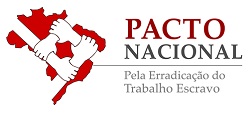
Coffee is part of the daily life of billons of people and its value chain has high economic relevance. With the raise of the sustainability theme, consumption awareness became a global trend and the sense of responsibility of each consumer is defining the new trends in coffee buying. People of the whole world take this into consideration when they consume any type of goods and coffee is not an exception.
Since it is a productive chain of domestic and international relevance, Brazilian coffee is under global spotlights. International demand for a socially sustainable productive chain is expanding and it is increasingly more present in roasting companies that buy coffee in Brazil. In this context, the strengthening of sustainable agribusiness systems has been constant, through actions that bring together farmers, and promote the development of new technologies and innovation.
In addition, we have several actions promoted by the coffee exporters’ segment, which for more than 15 years has been promoting digital inclusion and productive process improvements, with considerable increments on coffee productivity and harvested coffee quality. The Brazilian Coffee Exporters Council (Cecafe) recognizes its role as the entity that represents the Brazilian coffee export segment and understands the importance of sustainability, which includes social and environmental aspects of the productive chain. In this context, Cecafe has been acting to strengthen actions in the coffee regions, based on the Coffee’s Child at School Program, Digital Coffee Farmer Program, and Café Seguro Program, with important results that strengthen sustainability in the coffee productive chain in Brazil.
Aware of international demands for the segment, Cecafe now supports the Coffee Table Project, at an invitation of the National Pact to Eradicate Slave Labor Institute (InPACTO Institute), and of the Catholic Relief Services (CRS). The initiative aims at promoting aspects of transparency and promotion of decent work in the coffee sector of Brazil and has the support of certifying entities, governments and important international roasting companies.
Focusing its action in the State of Minas Gerais, the first effort will be to raise awareness of the social issues related to coffee production in the region and to mobilize governments, companies and civil society to establish a common agenda focused on improving labor conditions. Brazil is the leader in the world coffee market, recognized as the largest exporter of sustainable coffee in the world. Therefore, the purpose of the above-mentioned partnership is to contribute for the Brazilian coffee sector to consolidate itself as a world reference of socially sustainable productive chain.
In Cecafe´s partnership, the theme decent work is being incorporated in the training programs of the Digital Coffee Farmer Program, raising farmers’ awareness about work and labor conditions in their properties. This requirement is provided in the Brazilian Constitution and is increasingly more becoming a criterion in multinational companies buying decisions. That is why the frequently monitoring of what is happening in their property, especially regarding compliance to labor law, is of extreme importance for farmers. The Digital Coffee Farmer Program promotes better work and labor conditions and avoid problems during labor inspections.
Cecafe will continue to develop its activities towards bringing knowledge to farmers through digital inclusion, search for productivity, quality and income, gender equity, entrepreneurship and family succession. Cecafe and its partners assumed the commitment to increase farmers’ resilience, training them for them to overcome challenges and guarantee an increasingly more sustainable coffee crop.
About the Partner Organizations:
InPACTO

The National Pact to Eradicate Slave Labor Institute (InPACTO) was founded in 2013 to continue with the National Pact movement created in May 2005, the purpose of which is to promote the dialogue between governments, companies and civil society to create common agendas focused on the prevention and eradication of slave labor in productive chains. Currently, InPACTO brings together organizations and companies that are at the leading edge of combating slave labor and performs actions together with the various actors with this purpose. To learn more about InPACTO, visit www.inpacto.org.br
CRS

The Catholic Relief Services was created in 1943, especially to help people affected by World War II. Since then, the association continues to develop its role of facing humanitarian crises. From the year 2000 onwards, sustainability became a part of CRS’ strategy. The concept is to promote long lasting human development by creating opportunities of self-sufficiency to communities including rural communities. CRS has a global coffee program called Coffee Lands, the purpose of which is to promote sufficient income for the farmers to guarantee a good quality of life, in addition to preserving natural resources. Millions of people depend on coffee that depend on coffee for their survival can collaborate with resilient and prosper communities without harming the environment. In Brazil, the project that is the result of the partnership between Cefafe, InPACTO and CRS is called Coffee Table Project. To learn more about CRS, visit www.crs.org
Marcos Matos – Chief Executive – CECAFE
Marjorie Miranda – Coordinator of Social Responsibility and Sustainability Projects – CECAFE


Leave A Comment